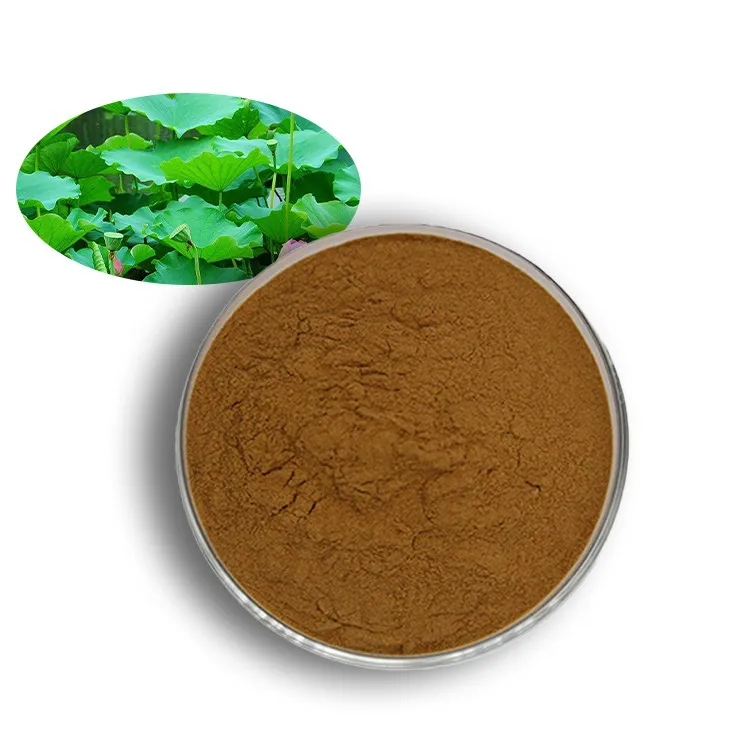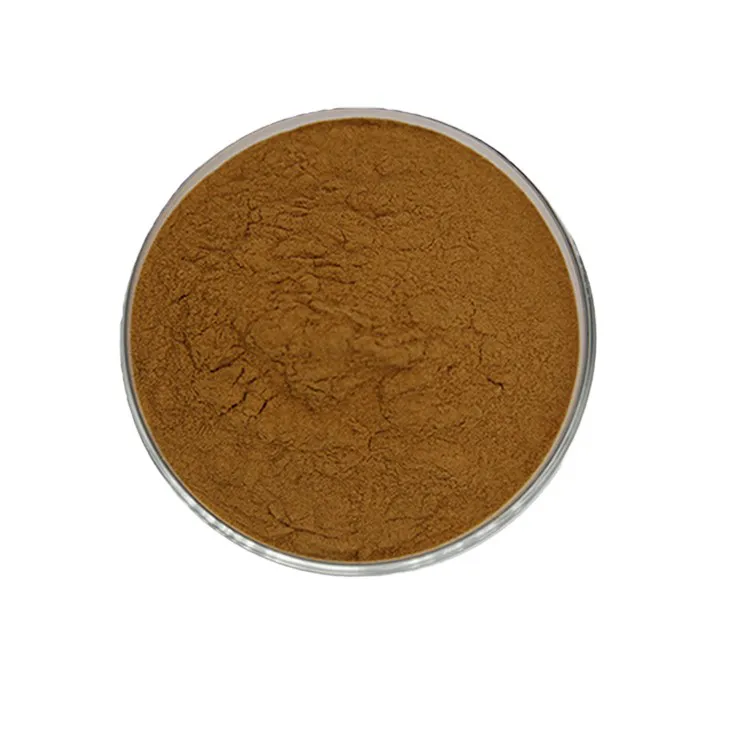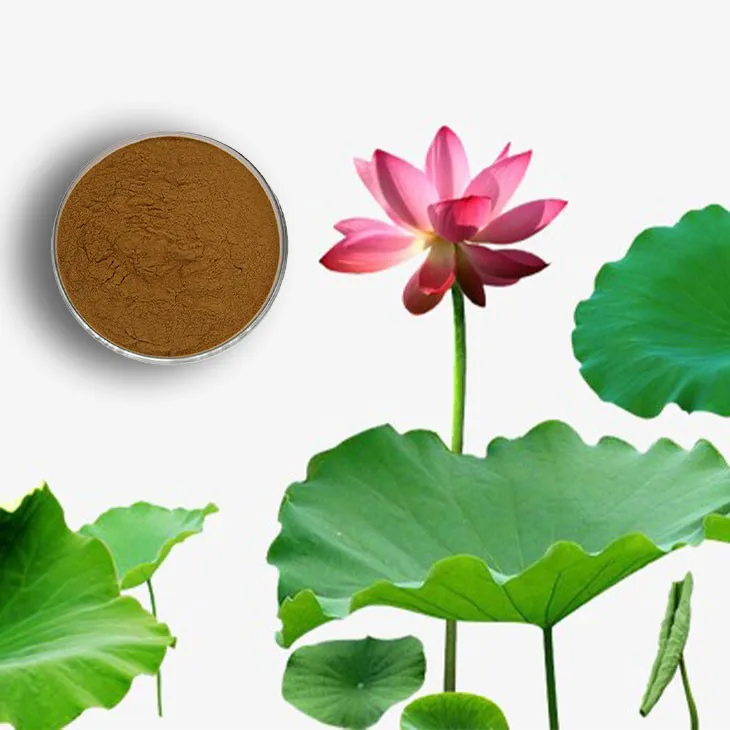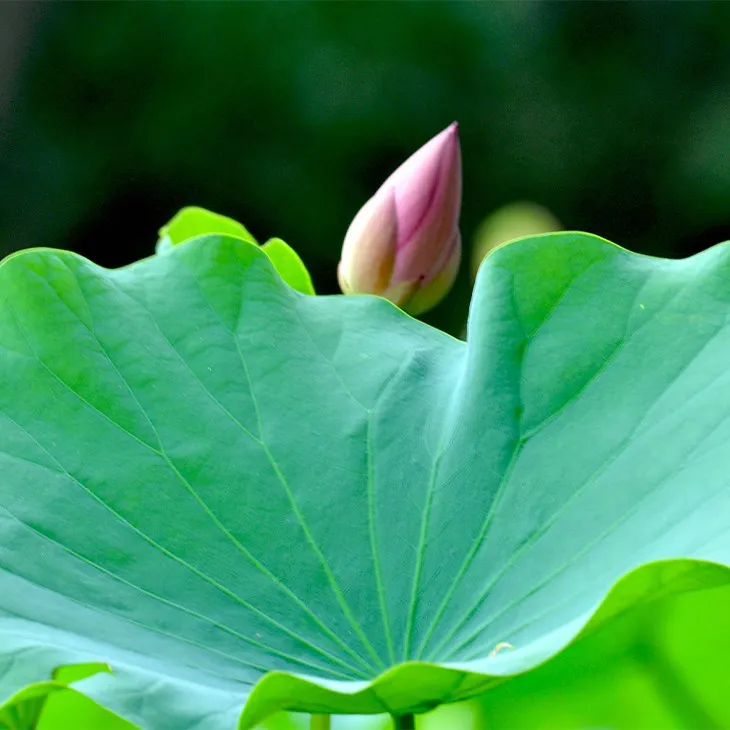- 0086-571-85302990
- sales@greenskybio.com
The best U.S. supplier of lotus leaf extract products for industrial applications.
2024-12-20

Introduction
Lotus leaf extract has been gaining significant attention in various industrial applications in the United States. As industries continue to explore natural and effective ingredients, the demand for high - quality Lotus leaf extract products is on the rise. However, finding the best supplier is crucial for businesses looking to incorporate these products into their operations. This article will explore the key characteristics that define the best U.S. supplier of Lotus leaf extract products for industrial applications.

Sustainable Sourcing
Sustainable sourcing is one of the most important aspects when considering a supplier of lotus leaf extract. With the increasing awareness of environmental protection, a top - notch supplier should be committed to sustainable practices.
Working with Local Farmers
An excellent supplier will collaborate with local farmers who adhere to sustainable agricultural methods. For example, organic farming is a preferred practice. By working with these farmers, the supplier can ensure that the lotus leaves are harvested in an environmentally - friendly manner. This not only helps in conserving the environment but also contributes to obtaining high - quality raw materials.
Local farmers who practice sustainable farming are more likely to take care of the lotus plants in a natural way. They avoid the use of excessive pesticides and fertilizers, which can contaminate the lotus leaves and affect the quality of the extract. Moreover, sustainable farming practices promote biodiversity in the area where the lotus plants are grown.
Environmental Protection
The best supplier should have a clear plan for environmental protection during the sourcing process. This may include measures such as reducing water waste during irrigation of lotus fields and minimizing soil erosion. By implementing these environmental - friendly practices, the supplier can contribute to the long - term availability of lotus leaves for extraction.
For instance, some suppliers may invest in advanced irrigation systems that recycle water, reducing the overall water consumption. They may also promote soil conservation techniques like contour plowing in the lotus - growing areas to prevent soil from being washed away during heavy rains.

Customized Solutions
Another crucial factor that distinguishes the best supplier is their ability to offer customized solutions. Different industries have different requirements when it comes to lotus leaf extract products.
Pharmaceutical Industry
In the pharmaceutical industry, precision is of utmost importance. The supplier needs to be able to provide lotus leaf extract with precise dosages and formulations. For example, when developing drugs that contain lotus leaf extract as an active ingredient, the concentration of the extract must be accurately controlled. The supplier should be able to adjust the extraction process and subsequent formulation to meet the specific needs of pharmaceutical companies.
Moreover, the packaging of the extract for the pharmaceutical industry should also be in line with strict regulations. It should ensure the stability and integrity of the product during storage and transportation, protecting it from factors such as moisture, light, and temperature changes.
Textile Industry
In the textile industry, the requirements for lotus leaf extract are quite different. Here, the extract may need to be formulated in a way that is suitable for fabric treatment. The supplier should be able to customize the product so that it can be easily integrated into the textile manufacturing process.
For example, the extract may need to be made into a form that can be evenly applied to fabrics during dyeing or finishing processes. It may also need to have certain properties such as being non - corrosive to textile machinery and not causing any discoloration of the fabrics.
Food and Beverage Industry
In the food and beverage industry, the taste, color, and safety of the lotus leaf extract are important considerations. The supplier should be able to customize the extract to meet the flavor profiles desired by food and beverage manufacturers. For instance, if the extract is to be used in a tea product, it should have a pleasant taste and aroma.
Also, in terms of safety, the supplier must ensure that the extract complies with all relevant food safety regulations. This includes proper extraction methods that do not introduce any harmful substances into the extract and appropriate packaging to maintain its freshness and quality.

Regulatory Compliance
For a supplier to be considered the best in the United States for lotus leaf extract products for industrial applications, regulatory compliance is non - negotiable.
FDA Regulations
The supplier must be well - versed in the relevant FDA regulations. These regulations cover various aspects such as the safety of the extract, the manufacturing processes, and the labeling requirements. For example, the supplier needs to ensure that the lotus leaf extract does not contain any harmful contaminants that could pose a risk to human health.
They also need to follow proper manufacturing practices as defined by the FDA. This includes maintaining clean and hygienic production facilities, proper handling of raw materials, and accurate record - keeping of the production process.
Industry - Specific Requirements
In addition to FDA regulations, different industries may have their own specific requirements. For example, in the cosmetic industry, there may be specific regulations regarding the use of natural ingredients like lotus leaf extract. The supplier should be aware of these industry - specific requirements and ensure that their products meet all the necessary criteria.
Compliance with these regulations gives customers the confidence to use the lotus leaf extract products in their industrial applications. It also protects the supplier from potential legal issues and helps in building a good reputation in the market.

Quality Control
High - quality control is essential for the best supplier of lotus leaf extract products.
Raw Material Inspection
The supplier should conduct strict raw material inspection of the lotus leaves. This includes checking for the freshness of the leaves, absence of pests and diseases, and proper identification of the lotus species. Only high - quality raw materials can ensure the production of high - quality extract.
For example, if the lotus leaves are not fresh, they may have already started to decompose, which can affect the chemical composition of the extract. Also, incorrect identification of the lotus species may lead to the production of an extract with different properties than expected.
Production Process Monitoring
During the production process, the supplier should closely monitor all the steps. This includes the extraction method, purification process, and packaging. Any deviation from the standard procedures should be immediately corrected to ensure the consistency and quality of the final product.
For instance, if the extraction temperature is not properly controlled during the production of the lotus leaf extract, it may result in a lower yield or a product with altered chemical properties. Similarly, improper packaging can lead to contamination or degradation of the extract during storage and transportation.
Finished Product Testing
Before the lotus leaf extract products are released to the market, comprehensive finished product testing should be carried out. This includes tests for purity, potency, and stability. The test results should meet the established quality standards.
If the purity of the extract is not up to the mark, it may contain impurities that can affect its performance in industrial applications. Potency testing ensures that the extract has the expected biological activity, which is crucial for industries such as pharmaceuticals. Stability testing guarantees that the product can maintain its quality over time, especially during storage and transportation.
Research and Development
A forward - looking supplier of lotus leaf extract products should be involved in research and development.
Discovering New Applications
The supplier should invest in research to discover new applications of lotus leaf extract. For example, in the field of biotechnology, there may be potential uses of the extract that are yet to be explored. By being at the forefront of research, the supplier can offer innovative products to different industries.
They may collaborate with research institutions or universities to conduct studies on the properties of lotus leaf extract. These studies could lead to the development of new products or improvement of existing ones, giving the supplier a competitive edge in the market.
Improving Extraction Techniques
Research into improving extraction techniques is also important. By developing more efficient and environmentally - friendly extraction methods, the supplier can increase the yield of the extract and reduce production costs. At the same time, better extraction techniques can also improve the quality of the extract.
For example, new extraction techniques may be able to preserve more of the beneficial compounds in the lotus leaves, resulting in a more potent extract. This can be highly beneficial for industries that rely on the active ingredients in the lotus leaf extract for their products.
Customer Service
Good customer service is a characteristic of the best supplier of lotus leaf extract products.
Technical Support
The supplier should provide technical support to its customers. For example, if a customer in the pharmaceutical industry has questions about the proper use of the lotus leaf extract in their drug formulation, the supplier should be able to offer expert advice. This includes providing information on the compatibility of the extract with other ingredients, recommended dosages, and storage conditions.
Technical support also extends to helping customers troubleshoot any problems they may encounter during the use of the extract. This can enhance customer satisfaction and loyalty.
Timely Delivery
Timely delivery of the lotus leaf extract products is crucial for industries. The supplier should have an efficient logistics system in place to ensure that the products are delivered to the customers on time. Delays in delivery can disrupt the production schedules of the customers and cause financial losses.
For example, in the food and beverage industry, if the lotus leaf extract is not delivered on time for the production of a new product line, it may lead to missed market opportunities and increased costs due to production rescheduling.
Responsive Communication
The supplier should maintain responsive communication with its customers. This means promptly answering customer inquiries, whether they are about product information, order status, or other concerns. A good communication channel can help build a strong relationship between the supplier and the customer.
For instance, if a customer in the textile industry has a query about a new formulation of the lotus leaf extract for fabric treatment, the supplier should respond quickly with detailed and accurate information.
FAQ:
What are the benefits of lotus leaf extract in industrial applications?
Lotus leaf extract has a variety of benefits in different sectors. For example, in the pharmaceutical industry, it may have certain medicinal properties that can be used in drug development. In the textile industry, it can be used for fabric treatment. However, specific benefits may vary depending on the nature of the industrial application.
How can a supplier ensure sustainable sourcing of lotus leaves?
A good supplier can ensure sustainable sourcing by working with local farmers who practice sustainable agricultural methods like organic farming. This way, they can protect the environment during the harvesting process and also obtain higher - quality raw materials. They may also implement proper management and monitoring systems to ensure the long - term viability of the lotus leaf sources.
What does it mean for a supplier to offer customized solutions for lotus leaf extract products?
It means that the supplier can adjust various aspects of the lotus leaf extract according to the specific requirements of different industries. For example, they can change the concentration, formulation, and packaging. In the pharmaceutical industry, precise dosages and formulations are important for drug development, so the supplier needs to be able to meet these specific needs. In the textile industry, the extract may need to be formulated in a way that is suitable for fabric treatment, and a supplier offering customized solutions can achieve this.
Why is regulatory compliance important for a lotus leaf extract supplier?
Regulatory compliance is crucial because it ensures that the products are safe and legal for industrial use. In the United States, a top - tier supplier must be well - aware of the relevant FDA regulations and other industry - specific requirements. This gives customers confidence when using the lotus leaf extract products, knowing that they are not at risk of using non - compliant or unsafe products.
How can a customer verify a supplier's regulatory compliance?
A customer can verify a supplier's regulatory compliance in several ways. They can ask the supplier for documentation related to their compliance, such as certificates or test reports. They can also check with relevant regulatory agencies or industry associations to see if the supplier has any history of non - compliance. Additionally, if the supplier is transparent about their production processes and quality control measures, it is more likely that they are compliant.
Related literature
- The Potential of Lotus Leaf Extract in Industrial Applications"
- "Sustainable Sourcing of Botanical Extracts: A Case Study of Lotus Leaf"
- "Regulatory Requirements for Botanical Extracts in the US Industrial Sector"
- ▶ Hesperidin
- ▶ citrus bioflavonoids
- ▶ plant extract
- ▶ lycopene
- ▶ Diosmin
- ▶ Grape seed extract
- ▶ Sea buckthorn Juice Powder
- ▶ Beetroot powder
- ▶ Hops Extract
- ▶ Artichoke Extract
- ▶ Reishi mushroom extract
- ▶ Astaxanthin
- ▶ Green Tea Extract
- ▶ Curcumin Extract
- ▶ Horse Chestnut Extract
- ▶ Other Problems
- ▶ Boswellia Serrata Extract
- ▶ Resveratrol Extract
- ▶ Marigold Extract
- ▶ Grape Leaf Extract
- ▶ blog3
- ▶ blog4
- ▶ blog5
-
Pure 85% Tomentil Extract.
2024-12-20
-
Europen Bilberry Extract
2024-12-20
-
Shikonin
2024-12-20
-
Beetroot Powder
2024-12-20
-
Black Pepper Extract
2024-12-20
-
Hawthorn powder
2024-12-20
-
Lemon Balm Extract
2024-12-20
-
Andrographis Paniculata Extract Powder
2024-12-20
-
Sophora Flavescens Root Extract
2024-12-20
-
Beta Carotene
2024-12-20
-
Red Wine Extract
2024-12-20





















